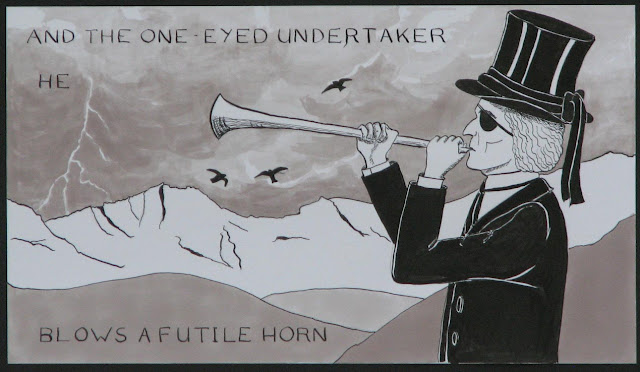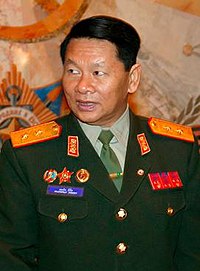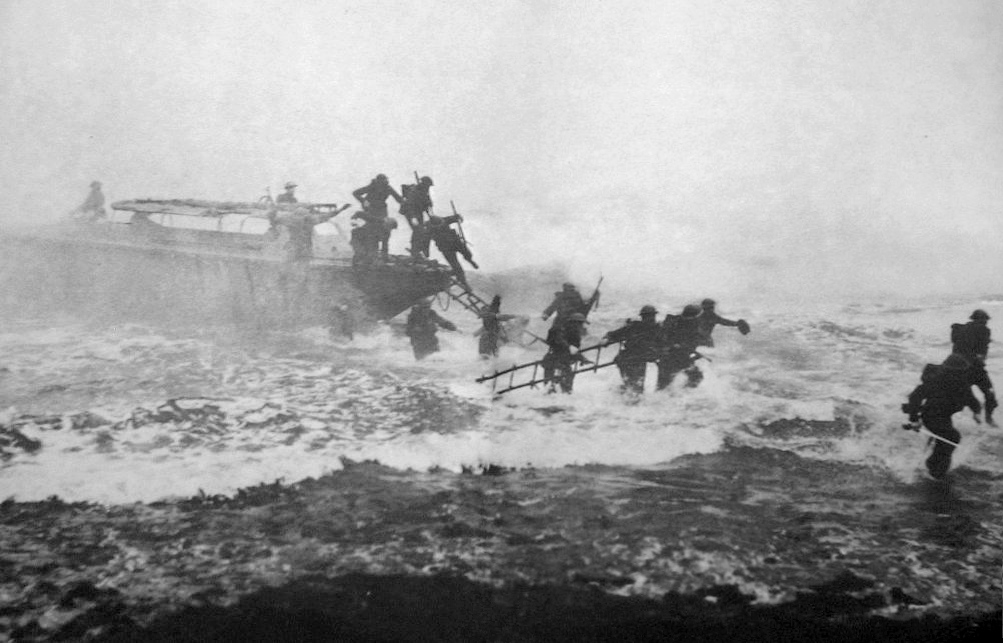
Ruined barracks at the Virginia Military Institute after Hunter’s Raid.
NYT
Of all places, a wonderful re-telling of the Battle of New Market in the
New York Times:
On the evening of May 10, 1864, on the first anniversary of the battlefield death of Gen. Thomas “Stonewall” Jackson, who had been a professor at the Virginia Military Institute before the war, some 300 V.M.I. cadets paraded the lush grounds in full dress while bands played and nearby townsfolk came to pay their respects. “Groups of girls in filmy garments set off with bits of color came tripping across the sod; and children and nurses sat about the benches at the guard-tree,” one cadet recalled.
The scene of secluded peacefulness in Lexington, Va., stood in sharp contrast to the pitched and bloody fighting only miles to the east. Maj. Gen. Ulysses S. Grant was moving south into central Virginia with an enormous army, and at that very moment was locked in the Battle of Spotsylvania Court House with the forces of Confederate Gen. Robert E. Lee.
Back in Lexington, however, the cadets had retired for the night, only to have their youthful dreams interrupted by a nocturnal roll call. The cadet corps stood at a sleepy parade rest as the adjutant read the unprecedented orders in his hand. By direct order of Maj. Gen. John C. Breckenridge, under authority from General Lee himself, the Corps of Cadets — some as young as 15 — was ordered to march immediately to Staunton, Va., to support Breckenridge’s forces, now preparing to meet an impending Union advance up the Shenandoah Valley.
A major advance it was. In the past, numerically superior Union forces had insufficiently coordinated their attacks, thus allowing more nimble Confederate forces to rebound quickly from one engagement to meet the next. Grant determined to mount concurrent assaults on Confederate positions in several theaters, stretching the Confederate defenses beyond their ability to respond.
In the West, Gen. Nathaniel Banks, in cooperation with naval forces under Adm. David Farragut, would move against Mobile, Ala., one of the last functioning Confederate ports. Meanwhile, Gen. William T. Sherman chased Joseph Johnston’s Army of Tennessee from Chattanooga, Tenn., toward Atlanta. Gen. Benjamin Butler would attempt to move against Richmond, Va., via the James River, while major engagements took place with Gen. George Meade and Grant confronting Lee’s Army of Northern Virginia. But one more attack was called for.
Since the beginning of the war, the Shenandoah Valley — the Breadbasket of the Confederacy — had funneled needed food and supplies to hungry Confederate troops, with Staunton as the neck of the funnel. Staunton in 1860 had a population of about 4,000, but with strategic influence far surpassing its size. Staunton was located at the intersection of the Valley Pike (which for centuries provided easy north-south access through the Shenandoah Valley) and the east-west Staunton-Parkersburg Turnpike. The Virginia Central Railroad also offered transportation through Staunton directly to Richmond.
From Grant’s perspective, until that funnel could be closed, Lee’s Army of Northern Virginia could continue to fight. Thus, as part of his spring 1864 offensive, Grant ordered newly promoted Maj. Gen. Franz Sigel to rid the Shenandoah Valley of Confederate troops, shutting off that vital supply lifeline.
Sigel was a curious choice for such a critical mission. One of many “political” Union generals — he was promoted to appease the loyal German population — Sigel had a conspicuously undistinguished military career, with several defeats to his credit. In addition to lackluster strategic and tactical skills, he had a tendency under stress to bark orders in German, mystifying most of his command. Nonetheless, as Grant’s choice, and with almost 9,000 troops under his immediate command, Sigel began his march up the valley to Staunton.
Lee understood the need to hold Staunton, and he ordered Breckenridge to assemble what troops he could find and repulse the expected Union campaign. A political general in a different sense, Breckenridge was a former speaker of the Kentucky House, a United States representative and senator and the vice president under James Buchanan. He ran second to Abraham Lincoln in the 1860 election. But as the war gathered momentum, Breckenridge resigned from the Senate and accepted a commission in the Confederate army. Despite a lack of military training and experience, he distinguished himself at Chickamauga in the western theater and made an able choice to protect the valley.
Breckenridge quickly consolidated the available troops, and moved his command to Staunton in early May. But still he was woefully undermanned. As Union activity along the pike increased, on May 10 he finally accepted an offer from Maj. Gen. Francis Smith, the V.M.I. superintendent, to supply 250 well-trained cadets “fully equipped … [with] abundance of ammunition, tents, knapsacks, shovels & picks, and … prepared to march at a moment’s notice.”
As the half-moon and lanterns barely illumined the institute grounds, Breckenridge’s order was read aloud to the corps. As they were dismissed, Cpl. John S. Wise and his classmates scrambled to prepare for battle. “As company after company broke ranks, the air was rent with wild cheering at the thought that our hour was come at last,” Wise recalled. Dressed, provisioned and on their way at 7 a.m., 247 members of the corps left schoolboy duties behind and began the 35-mile march to Staunton in drenching rain.
At least twice before, in 1861 and 1862, V.M.I. cadets had marched in support of General Jackson, but they never engaged in battle. Even on this occasion — with the need plain and their youthful enthusiasm spoiling for a fight — there was no guarantee the cadets would see action. Breckenridge had informed the cadet commander that “he did not wish to put the Cadets in if he could avoid it.” He then departed Staunton, advancing north through the valley to confront Sigel.
Some 45 miles away, the little town of New Market sat astride the Valley Pike along the North Fork of the Shenandoah River. Here the New Market Gap led east through Massanutten Mountain and the Blue Ridge Mountains, one of a handful of such access points in the valley, and both generals knew that he who controlled those gaps controlled access to the valley.
Though Sigel began his advance up the Valley with 9,000 men, he inexplicably spread his troops,
so his actual fighting force in New Market was far fewer. When Breckenridge arrived at New Market before dawn on May 15, much of the Union army was already in place, occupying the high ground at Bushong Hill, just north of the little village. Settled in, still with superior numbers (7,000 men to about 5,000), of the Union Army, on paper, had the odds overwhelmingly in its favor.
Breckenridge’s troops occupied the ground around Shirley’s Hill, just west of New Market, and about two miles south of Sigel’s main force. To confuse the Union commanders, Breckenridge employed an old trick, countermarching his troops over the crest of Shirley’s Hill and back again, multiplying the apparent size of his force. The strategy worked, as even after the battle, Sigel reported that his forces had engaged a much larger Confederate army.
At about 10 a.m. Breckenridge surveyed the field with cavalry commander Brig. Gen. John Imboden. Despite the unfavorable troop-strength ratio, Breckenridge quickly realized that the unique topography of the battlefield — sandwiched between the Shenandoah River and Smith’s Creek — would protect his flanks if he struck first. Since Sigel showed no signs of aggression, Breckenridge declared: “We can attack and whip them here, and I’ll do it!” He ordered all his troops to advance as quickly as possible, and the artillery batteries on both sides thundered in earnest.
The cadets’ role was to march in reserve, several hundred yards behind the main forces. By the time they crested Shirley’s Hill, Union artillery had found its range, and solid shot and rifled shells burst among the cadet ranks. Five cadets, including Corporal Wise, went down injured in the first salvo. Wise was knocked unconscious, awakening in a pouring rainstorm. But his injury proved not serious, and he later remarked, “‘Hurrah!’ I thought, ‘youth’s dream is realized at last. I’ve got a wound and am not dead yet.’” In his 1899 book “The End of an Era,” Wise would recall New Market as “The Most Glorious Day of My Life.”
By the time Breckenridge’s infantry had advanced almost two miles to the base of Bushong’s Hill, Union artillery shells had opened a dangerous gap in the middle of the line, a gap Sigel could soon exploit. Breckenridge’s aides pleaded with him to put the cadets into the fray to close the gap, and he at last relented, reportedly saying: “Put the boys in. And may God forgive me for the Order.” The cadets immediately marched into line of battle squarely in the center, facing furious Union artillery and musket fire.
Laying low behind a simple wooden fence, the cadets waited for the final charge. One cadet, John Howard, recounted later: “It was an ordinary rail fence, probably about four feet high, but as I surmounted the top rail I felt at least ten feet up in the air, and the special object of hostile aim. But in clearing this obstruction, I was leaving all thoughts of individuality behind.”
The order was given to advance at “double quick,” and the entire Confederate line, with the V.M.I. cadets holding its center, began the grueling and murderous march through a muddy wheatfield and up the hill. The cadets’ commander quickly went down, and he was succeeded by cadet Capt. Henry Wise, who led the final assault. The cadets, many losing their shoes in the thick mud of the wheat field — remembered as “The Field of Lost Shoes” — continued their attack, closing ranks each time a comrade went down, never allowing a gap in the line. Even Union troops marveled at their discipline and training. Though they were just a small portion of the total troops in the field, the cadets found themselves the point of the spear, finally cresting Bushong’s Hill, routing the Union artillery detail and capturing prisoners and a Union cannon.
Sigel had had enough. He withdrew his forces, retreating across the rain-swollen Shenandoah River and burning the bridge behind him. Breckenridge pursued as far as he was able, but his troops and ammunition were exhausted, and the Shenandoah proved a more formidable foe than had the Union commander.
The modest Confederate victory at New Market was one of the South’s last in the valley. And the cost of that triumph was enormous for the cadets. Because of the corps’ placement in the battle, of 43 Confederate battle deaths, 10 were cadets. Of 474 wounded, 45 were cadets. Three weeks later V.M.I. was burned in retribution by Union Gen. David Hunter, and classes did not fully resume there until the fall of 1865.
Beginning in 1887, V.M.I. has marked its role at New Market with a solemn roll call beneath the statue “Virginia Honoring Her Dead,” a gift of the world-renowned sculptor and New Market cadet Moses Ezekiel. Near the graves of 6 of the 10 cadets killed in the battle, and with today’s corps as a silent honor guard in full dress review, each squad and company reports the names of those absent from their ranks. A current member of the corps — when possible a descendant of the family of a New Market cadet — is assigned to answer for each of the 10. The names pass forward by platoon to company to the regimental commander, who reports to the commandant of cadets the following names: “Atwill, Cabell, Crockett, Hartsfield, Haynes, Jefferson, Jones, McDowell, Stanard, Wheelwright.” And to each name comes the grave reply: “Died on the Field of Honor, Sir.”
Sources: John Sergeant Wise, “The End of an Era”; William C. David, “The Battle of New Market,” William Couper, ed., “The Corps Forward”; Mark Grimsley, “And Keep Moving On: The Virginia Campaign, May-June 1864.” Special thanks to Col. Keith Gibson and Maj. Troy Marshall of the Virginia Military Institute and the Virginia Museum of the Civil War for their assistance on this article.
Jed Morrison is a lawyer and Civil War enthusiast in San Antonio.


























